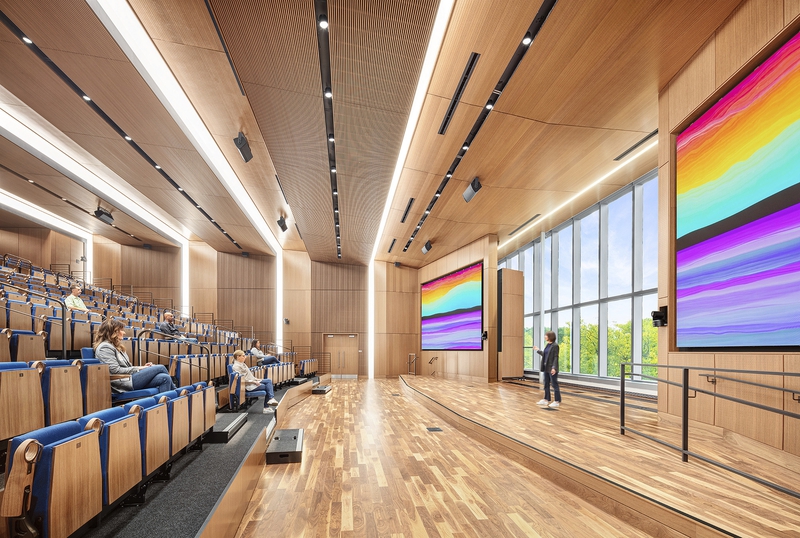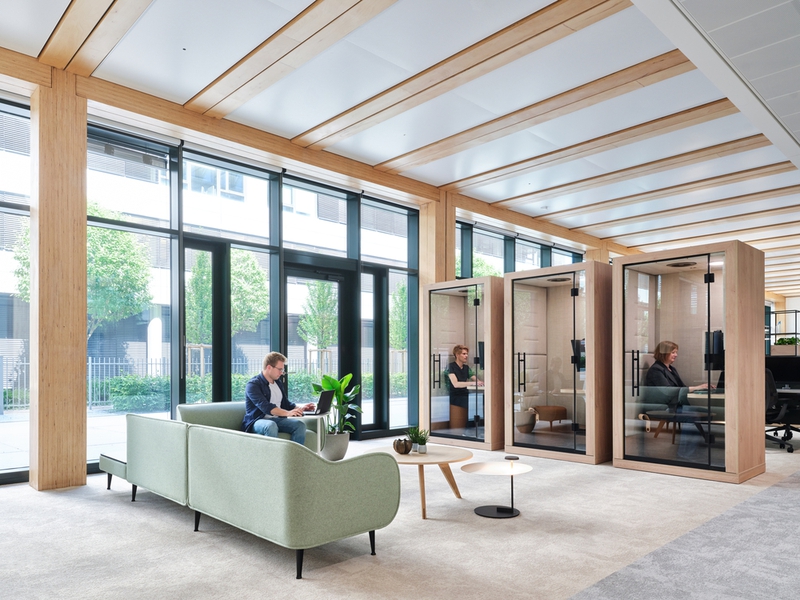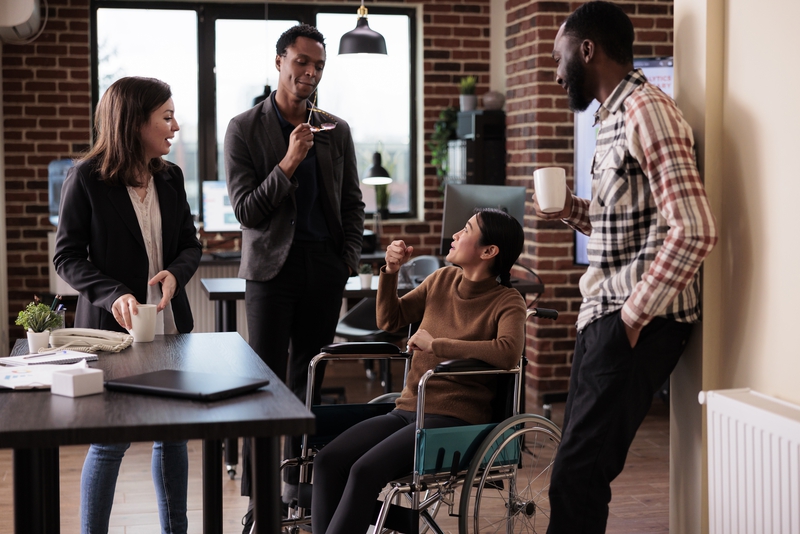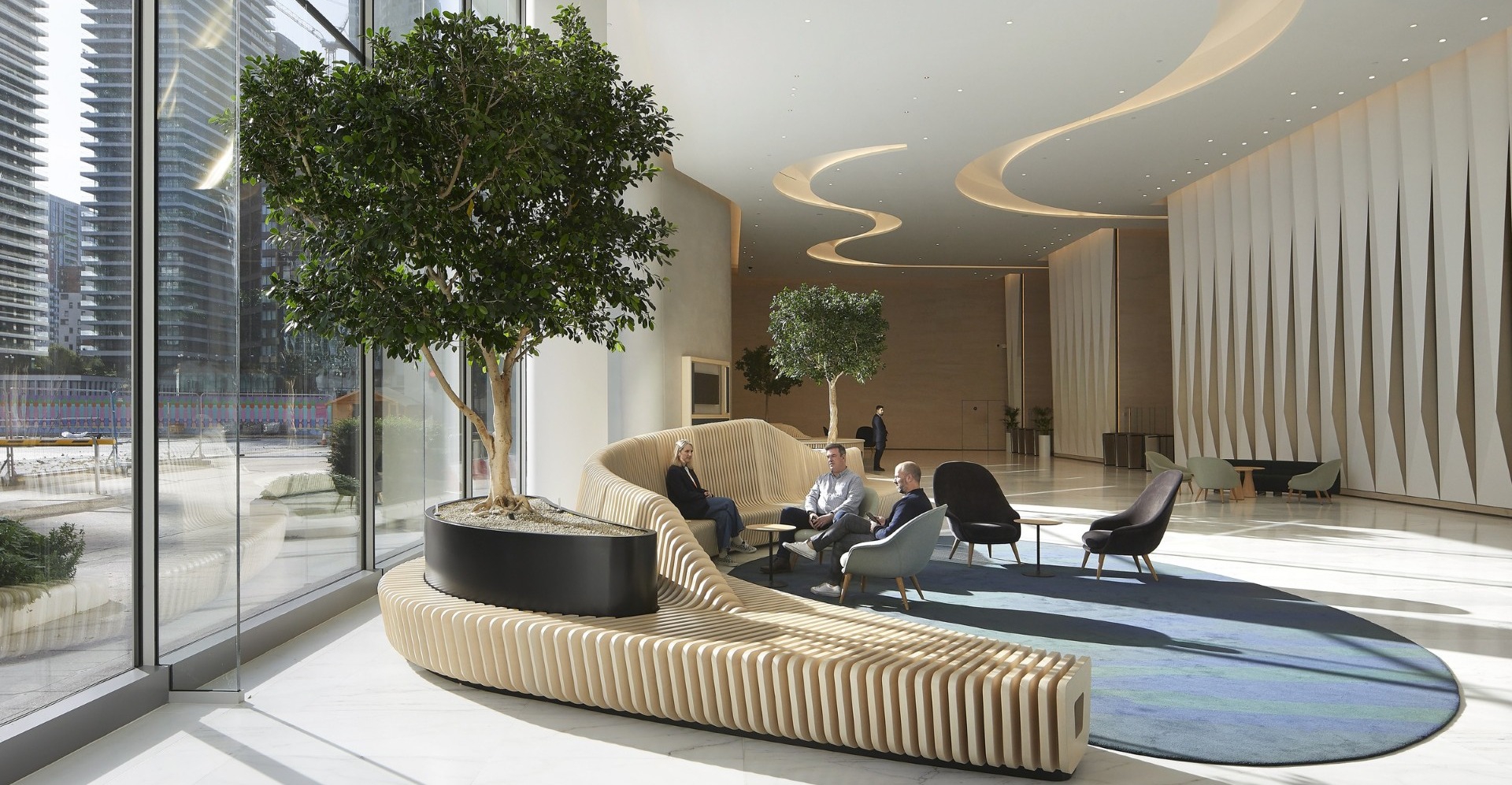
Rethinking Sustainability in the Workplace With Dr Asif Din of Perkins&Will
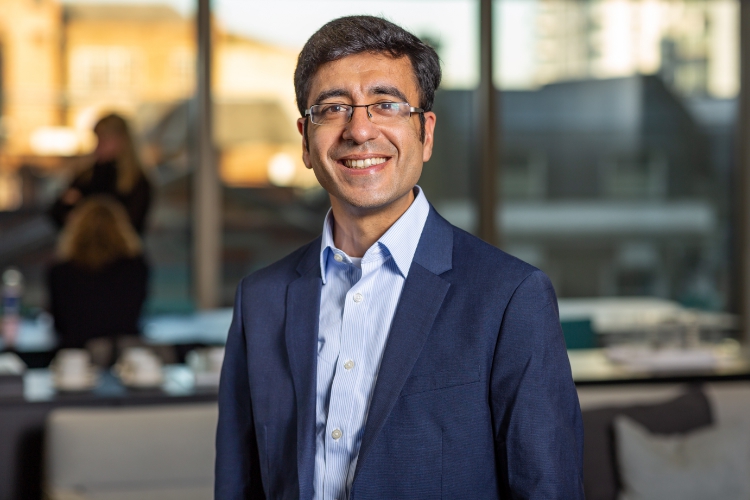
Our Sustainability team recently met with Dr Asif Din, Director of Regenerative Design at Perkins&Will, to discuss sustainability in the workplace, and how this landscape is shifting significantly in more than one way.
Our key insights and takeaways from the session:
1. The Future of Sustainability = Focus on Asset Management and Product Passporting
“Effectively, it is all about asset management… having a logbook showing the lifecycle of each item.” – Dr Asif Din
As more information is available with research, requirements and needs around interiors and furniture are tightening, and people expect to know where every ingredient comes from, in view of choosing the most sustainable option.
Whilst the one-off certifications provide a strong ground for a foundation on a project, we see the future of sustainability going towards ongoing tracking of products’ condition, lifecycle, and reuse potential.
2. Impact through Experience over Certificates
“It’s no longer that certificate on the wall. It becomes about the experience.” – Dr Asif Din
We are seeing an evolution around the importance of numbers and official requirements. The majority of people working in the sustainable workspaces don’t know the details involved in various certifications. What they will know however, is how the space feels and performs for them.
This positive lived experience of working daily in a space that feels right and works for the people, is how they will remember and recommend a space, rather than knowing they worked in a space that was certified at a particular level, although they may not have been able to see the tangible difference.
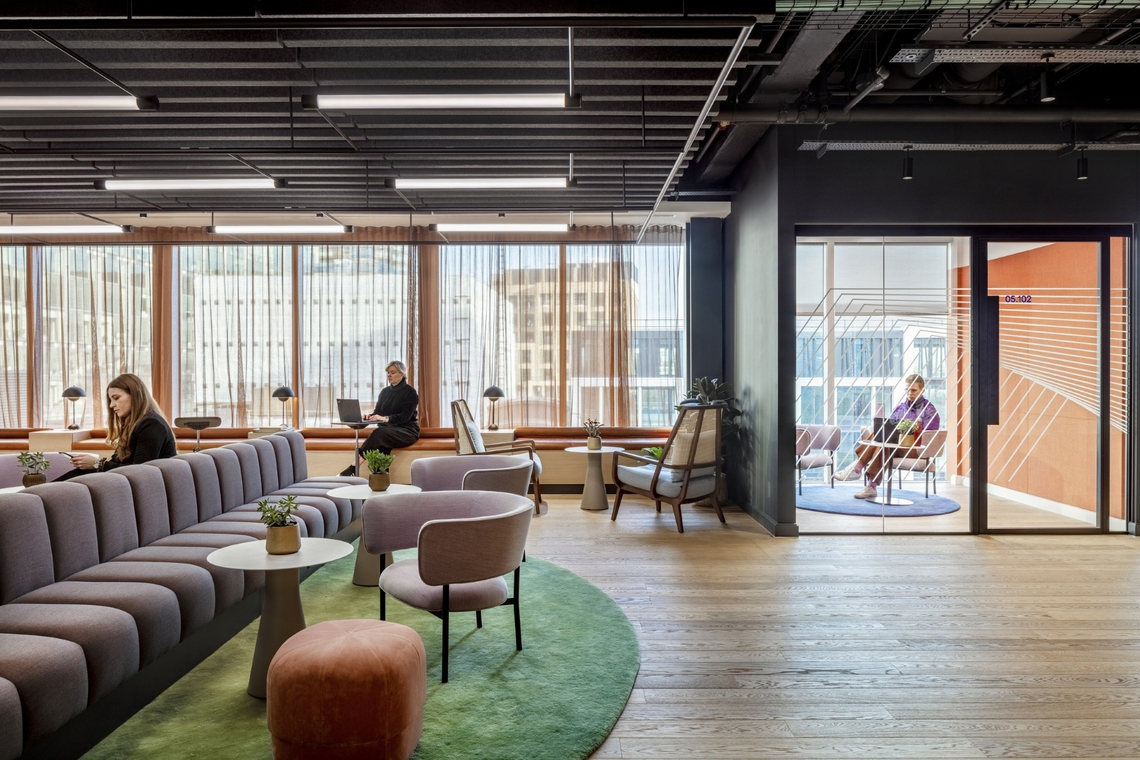
3. Generational Shifts & the Renting Mindset
“It’s almost like a renting mindset: people think ‘I don’t feel good in this space, I’m going to move.’” – Dr Asif Din
Younger generations expect choice, flexibility, and wellbeing in the workplace. With greater awareness and lower tolerance for poor environments, they are quick to move on if a space doesn’t meet their needs.
Education and modern work culture reinforce flexibility and movement between workstations, making fixed-desk models outdated.
For businesses, this means it’s worth investing in longer-life, lower-impact design that boosts productivity, wellbeing, and loyalty. A workplace that feels comfortable and caring creates stronger connections between employees and their company, something crucial in a time when traditional brand loyalty is fading.
At Spacestor, we’re seeing these shifts play out first-hand with our clients and partners, and it’s clear that sustainability is no longer a “nice to have” but a fundamental part of creating spaces where people truly thrive. By focusing on lifecycle thinking, meaningful experiences, and future-ready design, businesses can unlock long-term value for both their people and the planet.
Our team is always exploring how these ideas can be applied in practical, innovative ways within the workplace. If you’d like to continue the conversation or have questions about how sustainability can shape your own workspace strategy, we’d love to collaborate with knowledge and insights.
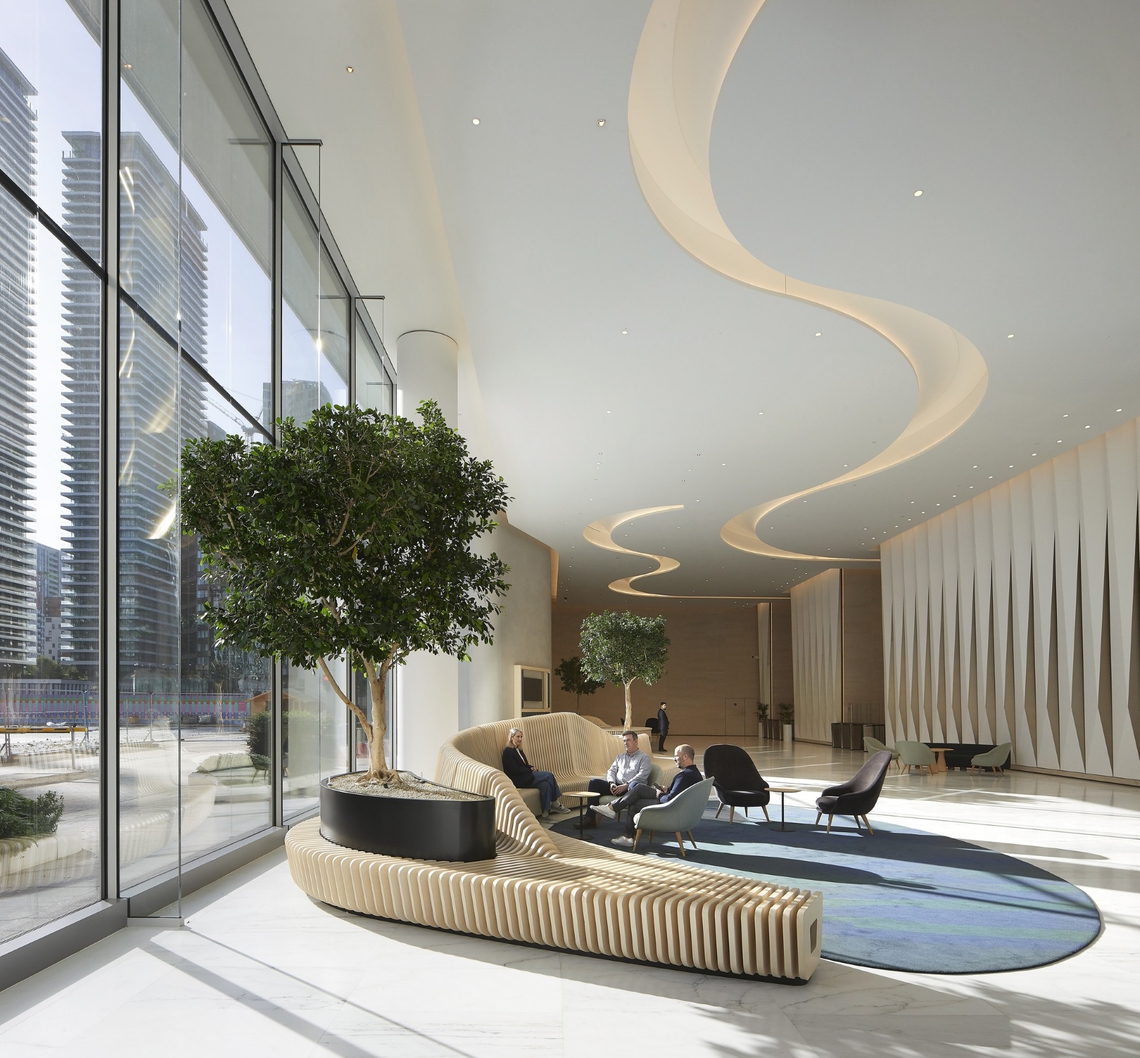
Image credits
©Perkins&Will Ed Reeve
©Perkins&Will Hufton Crow
